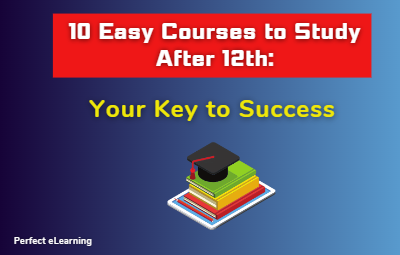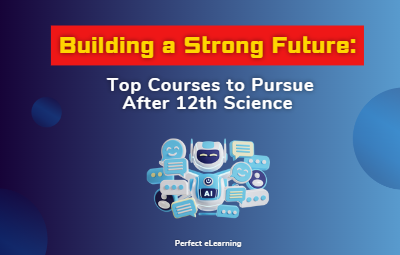

Are you a student who is about to complete your 12th grade? Congratulations on reaching this significant milestone in your academic journey! Now, it's time to embark on a new phase of your life and make choices that will shape your future. One crucial decision you will have to make is selecting the right course after 12th.
The transition from high school to college or higher education is a critical period. The course you choose will determine your career path, professional growth, and overall satisfaction in life. It's essential to consider your interests, strengths, and aspirations when making this decision.
Importance of Choosing the Right Course After 12th
Choosing the right course after 12th is of paramount importance. It sets the foundation for your career and opens doors to numerous opportunities. A well-chosen course not only enhances your knowledge and skills but also increases your employability and earning potential.
Popular Streams and Courses
There are several streams and courses available to students after completing their 12th grade. Let's explore some of the popular options:
1. Science Stream
For students passionate about scientific exploration, the science stream offers a wide range of opportunities. You can pursue courses in engineering, medicine, pure sciences, biotechnology, or environmental sciences, depending on your interests and aptitude.
2. Commerce Stream
If you have an affinity for numbers, finance, and business, the commerce stream provides a plethora of options. You can choose courses in accounting, economics, business administration, finance, or chartered accountancy to build a strong foundation in the world of commerce.
3. Arts Stream
For the creatively inclined individuals, the arts stream is an excellent choice. You can delve into subjects like literature, history, philosophy, fine arts, performing arts, or journalism. The arts stream offers diverse career paths in fields such as writing, media, advertising, and more.
4. Vocational Courses
Vocational courses provide practical skills and hands-on training, equipping you for specific industries. These courses include hospitality management, culinary arts, fashion design, photography, event management, and many more. Vocational courses focus on skill development and can lead to immediate employment opportunities.
5. Professional Courses
Professional courses cater to specialized fields such as law, architecture, company secretaryship, chartered financial analysis, and so on. These courses require in-depth study and expertise and often lead to high-paying and prestigious careers.
Emerging Fields and Future Prospects
The professional landscape is ever-evolving, with new fields and opportunities emerging regularly. It's essential to stay updated with the latest trends and explore emerging fields such as artificial intelligence, data science, cybersecurity, digital marketing, sustainable energy, and environmental studies. These fields offer immense potential for growth and promise exciting career prospects.
Factors to Consider when Choosing a Course
Choosing the right course involves considering various factors. Here are some essential aspects to keep in mind:
1. Researching Course Options
Take the time to research and gather information about different courses. Explore the curriculum, career prospects, and industry demand for each course. Consider factors such as job opportunities, growth potential, and work-life balance.
2. Assessing Personal Interests and Aptitude
Understanding your interests, strengths, and skills is crucial when selecting a course. Identify your passion and aptitude to align them with your career goals. Consider taking aptitude tests or career counseling to gain more clarity.
3. Seeking Guidance from Counselors and Mentors
Seek guidance from experienced counselors and mentors who can provide valuable insights. They can help you understand the pros and cons of various courses and guide you based on their expertise and industry knowledge.
4. Exploring Opportunities for Higher Education
If you have plans for higher education, choose a course that aligns with your long-term goals. Some courses have prerequisites for advanced studies, and planning ahead can save you time and effort in the future.
Conclusion
Choosing the best course after 12th is a significant decision that requires careful consideration. By assessing your interests, exploring various options, seeking guidance, and understanding the future prospects, you can make an informed choice. Remember, your course selection will shape your future, so choose wisely and embrace the exciting opportunities that lie ahead.
Frequently Asked Questions (FAQs)
Q1: What if I am unsure about my career goals after 12th?
A1: It's common to be unsure about your career goals. Seek career counseling or take aptitude tests to gain clarity on your interests and strengths.
Q2: Can I switch courses after starting one?
A2: While it's possible to switch courses, it's advisable to choose the right course from the beginning. Switching courses may delay your graduation and impact your academic journey.
Q3: How important is future career growth while choosing a course?
A3: Future career growth is crucial when selecting a course. Consider the industry demand, growth prospects, and potential salary increments to make an informed decision.
Q4: Is it necessary to pursue higher education after completing 12th?
A4: Pursuing higher education depends on your career goals. Some professions require advanced degrees, while others may prioritize practical experience. Assess your aspirations before making a decision.


